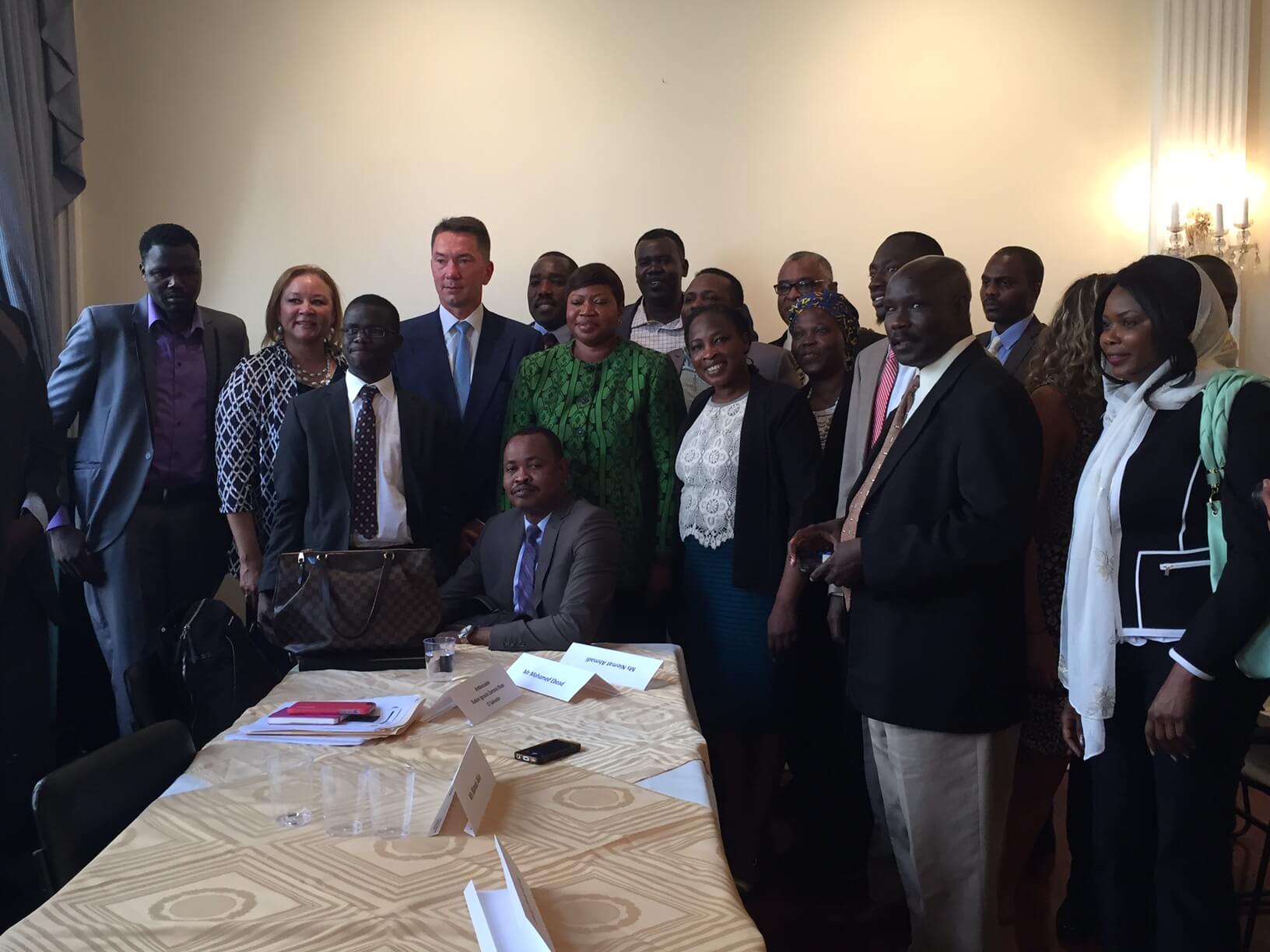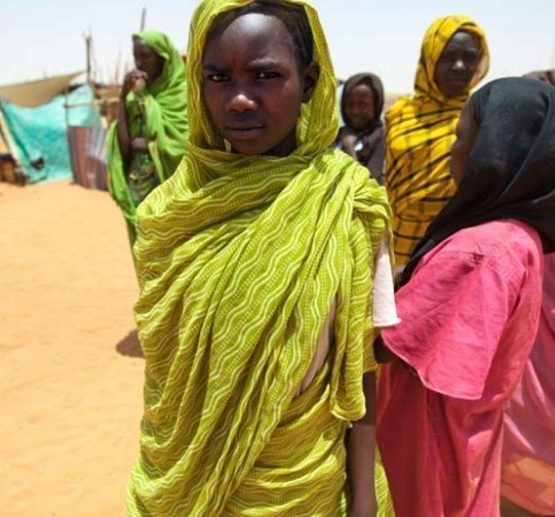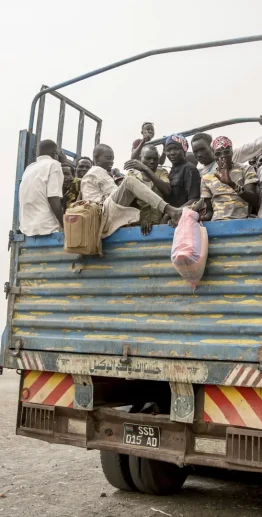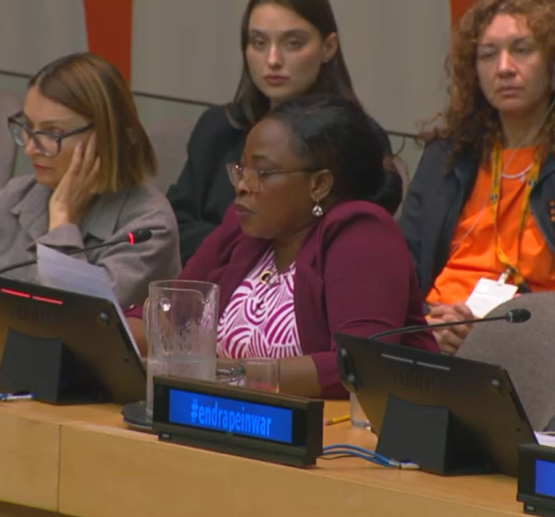Hope for Justice- The International Criminal Court’s 23rd briefing on the Situation in Darfur
By Katelyn Serpe- Communications & Network Building Intern at DWAG
Last week, I had the privilege of a companying DWAG’s president to the UN to attend the ICC prosecutor’s bringing on the situation in Darfur.
On June 9, 2016, the Chief Prosecutor of the International Criminal Court (ICC), Fatou Bensouda, presented the 23rd report on the situation in Darfur, Sudan to the United Nations Security Council. It has been over ten years since the case was referred to the ICC and it has still not been resolved.
The President of Sudan, Omar al-Bashir, remains free and travels across international borders, despite the two arrest warrants that have been issued for his arrest. Prosecutor Bensouda pointed out that her Office’s “countless appeals to [the Council] for action to address the persistent failure of Sudan to comply with its international obligations have not been heeded” and “the Council’s failure to act in response to 11 findings of non-compliance issued by ICC judges has equally emboldened states…not only to facilitate Mr. al-Bashir’s travels to their territories but to invite and host him.”
This non-compliance with the requests of the ICC impedes the Court’s ability to investigate the situation and, once the matter has been brought to the attention of the Council in accordance with Article 87.7 of the Rome statute, the Council “is duty bound to act, to give due consideration to the judicial ruling, and to take decisive action as appropriate” (Fatou Bensouda).
The overwhelming majority of states on the Security Council who were present at the briefing supported the prosecutor’s position and agreed that the situation in Darfur is unsettling and that effective action must be taken to allow justice to prevail. With exception to the delegates from Angola, Egypt and Russia who have presented a controversial position, which is not a surprise looking at the records of their own countries. As stated by the prosecutor, the African Union as a political bloc has provided additional obstacles in the ICC investigation into the situation in Darfur and has been largely protecting the leaders rather than the African victims in Darfur.
To the contrary, the delegate of Sudan has presented miss-information and opposed the Prosecutor’s report about the situation in Darfur. He also suggested that Article 13(b) of the Rome Statute has been used to subjugate victimized states. This Article states that “the Court may exercise its jurisdiction with respect to a crime referred to in Article 5 in accordance with the provisions of this Statute if: A situation in which one or more such crimes appears to have been committed is referred to the Prosecutor by the Security Council…” (Rome Statute of the International Criminal Court). The crimes referred to in Article 5 are those of genocide, crimes against humanity, war crimes, and crimes of aggression, which are defined in later Articles. Mr. al-Bashir has been accused of war crimes, genocide, and crimes against humanity, justifying the use of Article 13(b) by the Court.
In regards to the African states, the prosecutor has confirmed that despite some states that attempt to block the investigation there remain some states that strongly support the ICC’s effort. In addition, at the briefing most of the member states of the UNSC who were present have expressed their overwhelming support to the prosecutor’s position on the situation in Darfur and have expressed concern and stressed that al-Bashir should not be allowed to undermine the authority of the UNSC.
That same day in the afternoon a side event had been organized by the International Justice Project to renew support for the ICC where the prosecutor spoke alongside DWAG’s president, other speakers from the NGOs community who are fighting for justice, and the members of the Darfur community as survivors and witness testified on their personal accounts, making the case on why justice is particularly important in ending the genocide in Darfur.
“In spite of all the challenges at hand we remain hopeful, understanding that pursuing justice for genocide crimes may be difficult but not impossible. Therefore we will continue to rally support for the ICC and fight for justice no matter how long the road could be,” said Niemat Ahmadi, DWAG’s president.
Speaking to the crowd, the chief prosecutor Bensouda addressed the members of the Darfuri communities and the advocates, stating that “despite of the many obstacles, my office is extremely committed and will continue to investigate and work hand in hand with you to bring those who committed crimes to face justice”
As Martin Luther King Jr. said, “The arc of the moral universe is long, but it bends towards justice.” We must remain hopeful and confident that there will be justice for the many victims of Darfur.


UN Security Council Meeting Coverage
http://www.un.org/press/en/2016/sc12393.doc.htm



